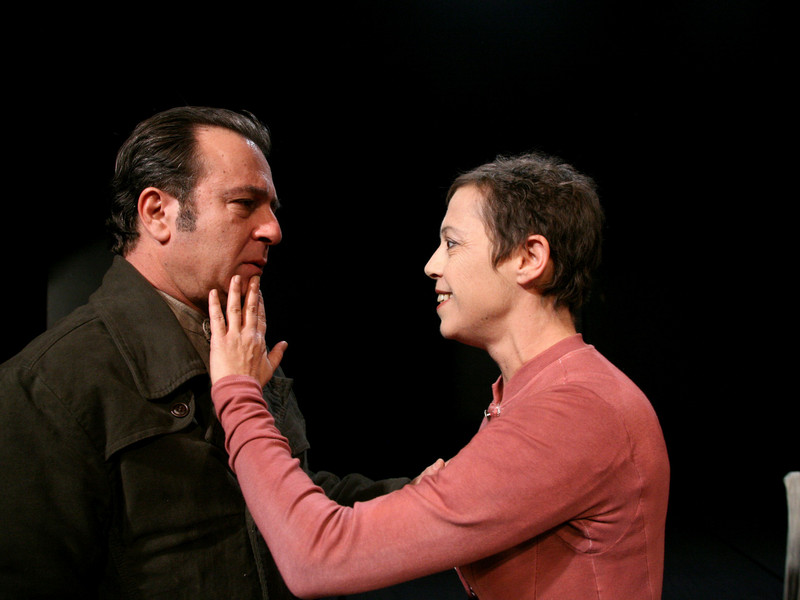Yerma |
Herzliya Theater Ensemble
Premiere: July, 2008 |
|
|
Translation and Adaptaion: Shimon Bouzaglo
|
 View Images
|
There aren’t many playwrights who managed so successfully to portray women’s complex characters as Federico Garcia Lorca. With a master’s sure hand and a poet’s sensitive soul he exposes ancient etchings of a woman’s figure and spirit to my eyes. I find that only Anton Chekhov (in his own unique theatrical language) has managed to achieve the depth and multi-layered depiction portrayed by Lorca’s. And here I am – woman, director standing before his words opening a pair of eyes in the wake of a sudden discovery. This is not the same Lorca that I read in my twenty’s. Nor is this the same Yerma – A Yerma whom I had read as a combative figure fighting for self-fulfillment. No, it is not the same figure I remember: A woman in the service of Feminist ideology and “gender studies”. I look to the outside and to the inside and see a somber picture dealing with madness. Yerma is a woman who cannot conceive, and yet does not become embittered. She is transformed into a force of primal powers, destabilizing the society surrounding her, threatening the status quo. A woman that needs to be locked behind bars, that requires to be expelled from society: A woman that casts a long shadow of doubt over the existing norms of WOMAN and MAN – while on the other hand being the essence of womanhood. I started my work on this play from a reflection on this conflict. Lorca’s words now uprooted from the book live before my eyes, blurring the first sketch of the archetypal woman. Words envelope me, words, words, words: Words that have a life of their own and create a world while I try to separate myself from Spanish Folklore so as to create a stylized theater in which the word uttered in space has a meaning that transcends locality. I look around me and hear words. Innumerable cliché’s free-flowing from the Television to the newspapers, and I see a stubborn mechanism pushing and shoving. I see the same women – women who cannot find their place in a society and culture that encourages birth and conception. I see women who gradually lose their sanity, and are expelled from society. I see a potential for a definition of madness.
Ofira Henig Artistic Director
|
